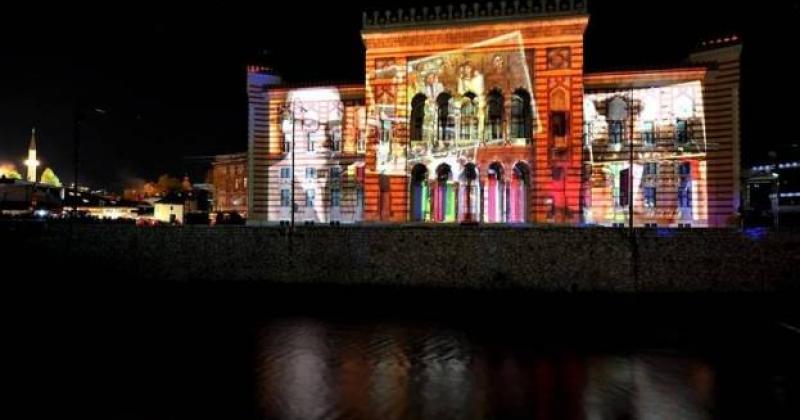Sarajevo was once a shining example of a multi-ethnic and multireligious city. But the Balkan war and the three-year siege marred relations between its various communities. The Pope will spur reconciliation.
On June 6 the Pope is to pay a “flash” visit to Sarajevo, a city that was once considered the “Jerusalem of Europe” and which John Paul II visited in 1997, a city that was the theatre of the events that sparked the Great War just over a century ago and which came to symbolise the Balkan war. Pope Francis unexpectedly announced his visit at the end of yesterday’s Angelus, adding yet another trip to his already busy 2015 schedule. So far this year, the Pope has travelled to Sri Lanka and the Philippines and is due to visit Ecuador, Bolivia and Paraguay in July, as well as the United States in September. Francis will only be paying a day visit to Bosnia Herzegovina, as he did when he visited the Albanian capital, Tirana, last September.
“God willing, on Saturday 6 June I will travel to Sarajevo, the capital of Bosnia-Herzegovina,” the Pope said in his announcement. “I ask today that you pray so that my visit to that dear population may be an encouragement for the Catholic faithful, arouse ferments of good and contribute to the consolidation of brotherhood and peace, of interreligious dialogue and friendship.''
Francis’ references to interreligious dialogue and friendship were spontaneous. With the exception of his short visit to the European Parliament in Strasbourg, which lasted just a few hours, the Pope has chosen to begin his European visits starting from the peripheries and especially the parts of the Old Continent that are home to Christians of different denominations, Muslims and Jews. Sarajevo has always been a multi-ethnic and multireligious city. It suffered under the Bosnian Serb siege that lasted over three years. And relations between the various ethnic and religious communities were marred as a result.
The Pope’s visit to Sarajevo is “good news”, said the Vatican spokesman, Fr. Federico Lombardi, “and the words he added off the cuff about interreligious dialogue and friendship are important. The Pope continues his European travels starting from the “peripheries”, that is countries where Catholics are a minority,” the Vatican spokesman Fr. Federico Lombardi said.
“We are very happy about this news of the Papal visit to Sarajevo and everyone is awaiting,” Archbishop Luigi Pezzuto, Apostolic Nuncio to Bosnia-Herzegovina, told Vatican Radio. “There have already been some reactions to the news: we have been expecting this visit for some time now and we are sure it will do a great deal of good and not just to Catholics, because Sarajevo is not only a cultural but also a religious crossroads, home to different Christian denominations and religions.” “We must pray a lot for this visit to bring many fruits both for the local Church, the Catholic Church, and for society as a whole; so on a cultural and a religious level, so that we can really move toward a climate of peaceful coexistence. This process has already been set in motion, but needs to mature and must be seen through to the end,” the Nuncio said.
